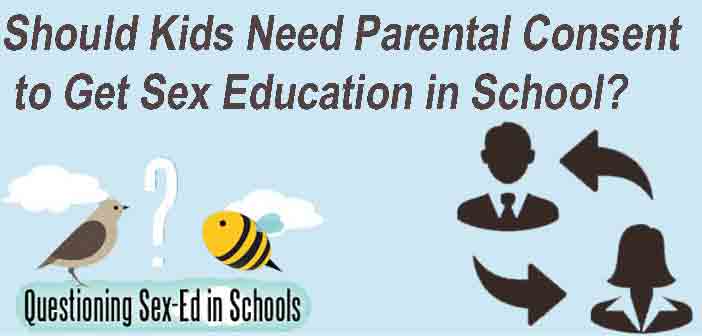Looks like it’s one step forward and one step back for Kansas. Last week, a committee in the statehouse squashed a bill that would have expanded spanking rights in schools. That’s a point for student rights. Another two bills were introduced this month in the state House and Senate that would require parental consent before kids would be allowed to take sex education classes.
State law currently allows local school boards to decide whether they want to require parents to approve sex education for their kids.
Republican state Sen. Mary Pilcher-Cook sponsored bills S.B. 376 and H.B. 2620 after a constituent came to her in January appalled at a poster hanging in his daughter’s middle school. Titled “How Do People Express Their Sexual Feelings?,” the poster highlighted sexual activities, such as “grinding,” “oral sex,” “kissing,” and “sexual fantasy,” that could put them at risk for contracting an STD.
“We need to protect children from hurtful material in schools,” Pilcher-Cook said last week. “We need to protect the rights of parents to shield and protect their children from harmful material.”
The poster that triggered this legislation is part of an abstinence-based curriculum, Leigh Anne Neal, a spokesperson for the Shawnee Mission School District, told the Sexuality Information and Education Council of the United States.
Neal said, “The poster that you reference is actually part of our middle school health and science materials, and so it is a part of our district-approved curriculum.… However the item is meant to be part of a lesson, and so certainly as a standalone poster, without the context of a teacher-led discussion, I could see that there might be some cause for concern…. The curriculum it is a part of, it aligns with national standards around those topics, and it’s part of our curriculum in the school district.”
According to the National Conference of State Legislatures, three states—Arizona, Nevada, and Utah—require parental consent before a child can receive sex education in school.
A much larger number of states require sex education. As of January, 22 states and the District of Columbia mandate that public schools teach sex education, according to the Guttmacher Institute. Twenty of these states mandate both sex education and HIV education.
However, 37 states and the District of Columbia require school districts to allow parental involvement in sexual education programs, which can mean anything from parents having a say in the curriculum to incorporating them into schools’ health education committees. In 35 states and the District of Columbia parents can opt their children out of sex ed.
The Kansas Association of School Boards already has a policy that encourages districts to make sex education an opt-out decision by parents. Some scholars say that even opting out shouldn’t be allowed.
“This is an issue of curriculum, not of sex,” says Nancy Niemi, associate professor and head of the education program at the University of New Haven. “Schools only ask parents for permission to present issues when they perceive they may get uncomfortable questions and questioning from parents. Why don’t we ask parents for permission to talk about war? About immigration? About fractions?”
Steve Siebold, author of the book Sex, Politics, Religion: How Delusional Thinking Is Destroying America, says schools don’t teach enough sex education. “It’s embarrassing that our kids are forced to learn about sex on the streets or through porn,” he says. “Whether we like it or not, teenagers are going to have sex, so why not at least prepare them through comprehensive sex education courses to have safe sex?”
The statistics are there. According to a 2011 Centers for Disease Control and Prevention survey, more than 47 percent of all high school students say they have had sex. Fifteen percent of high school students have already had sex with four or more partners.
Niemi says that schools are in the business of educating students, and they should teach without asking permission. “As long as schools have factually correct materials and excellent teachers—about every subject, including sex,” she says, “then we should not be asking parents for permission.”

